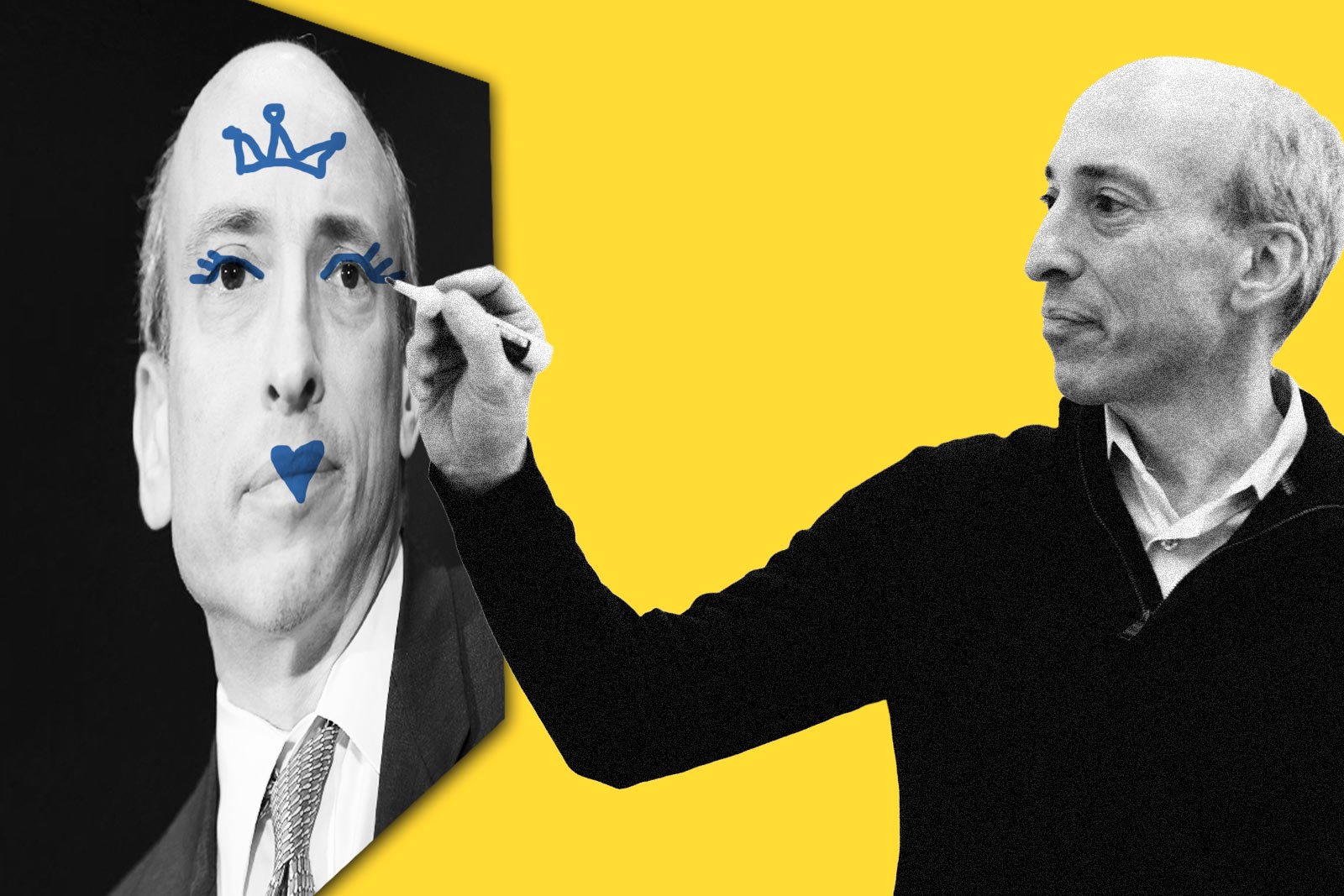
As the old proverb says: “what goes around comes around”. That seems to have come true for the U.S. Securities and Exchange Commission (SEC), whose video insulting meme stock investors has resurfaced with a lashing of public criticism.
Earlier this week, the SEC published a video on its YouTube channel as part of its public service campaign. The video was produced in an effort to “educate investors in a playful way that investing is not a game and that they should do their due diligence when making investment decisions”, as the SEC explained.
Sponsored
The video, titled “Investomania: Meme Stocks”, featured a fictional game show in which one of the contestants chose meme stocks as an investment category. The participant immediately lost his cash and, as bonus insult to injury, was slapped in the face with a cake. In the meantime, his competitor received a reward for saying that she would do some research first.
The term “meme stocks” is typically applied to stocks which gained instant popularity among retail investors due to the influence of social media, and saw their prices skyrocket within a short time as a result.
A flagship example of meme stock is GameStop, which went viral in early 2021. In the now notorious case, social media users banded together to purchase GameStop stock after learning that hedge funds were planning to short the video game retailer. The movement became hugely popular, and saw the failing stock’s price spike sharply over the course of just a few days. Wall Street professionals were trapped in a short squeeze, resulting in billions of losses, and even the closure of some hedge funds.
Questioning the Ethics
The YouTube video, whic had its comments turned off, sparked rage and criticism among retail investors, and even former SEC executives.
As seen in their posts, many were surprised to discover that the institution, which aims to protect retail investors, had chosen to disparage them, portaying them as being dumb, and incapable of making well-researched investment decisions.
“When Wall Street, pensions & hedgies go long on a stock it’s called investing. When retail investors go long on a stock they are labeled as “dumb money” because they invested in what the media & SEC calls meme stocks while being ridiculed for it”, wrote algorithmic engineer Ryan Rigg.
“I researched $AMC and $GME harder than any other stock I had researched, and in January and May/June of 2021, we were right for the second time when both stocks squeezed. You’re not just as bad as the Wall Street gangs. You’re worse,” commented developer and amateur trader TrueXDemon.
The retail investor community accused the SEC of violating federal ethics regulations in the display of bullying towards meme stock investors. Users on social media encouraged each other to file complaints with the Inspector General of the SEC for investigation.
Some have even filed requests with the SEC, asking them to reveal the cost of the scandalous video to taxpayers.
Exposure of Retail Abuse Cases
Former SEC branch chief Lisa Braganca showed solidarity with meme stock investors, as she joined the discussion to expose the SEC for other serious cases of retail investor abuse, dark pool trading, and institutional market manipulation.
“Very disappointing to see SEC disparage investors in meme stocks as if they must have done it thoughtlessly – esp when SEC permits most trading to take place in dark pools. How about a video about dark pools, GaryGensler? Or better yet, get trading into the open,” she tweeted.
Very disappointing to see SEC disparage investors in meme stocks as if they must have done it thoughtlessly - esp when @SECGov permits most trading to take place in dark pools. How about a video about dark pools @GaryGensler ? Or better yet, get trading into the open. https://t.co/V1YqKSreFY
— Former SEC Branch Chief Lisa Braganca (@LisaBraganca) June 1, 2022
Dark pools are privately organized exchanges for the trading of securities, enabling institutional investors to trade without public exposure.
Although they are technically legal, and regulated by the SEC, dark pools have raised a lot of concerns about an environment of unfair informational advantages, especially in regards to allowing institutional players to trade ahead of retailers.
Braganca further claimed that the SEC should better spend taxpayers’ money to stop short-seller abuses of retail investors, and other systematic biases against them.
“My point is that SEC is disparaging retail investors in GME AMC and other so-called meme stocks who have done the research and decided they like the stock but don’t like the manipulation by short sellers.
SEC and Congress should be reconsidering how markets are structured. The structure is opaque and complex in order to benefit big institutions. It does not have to be like that. It is too complex for any one person to fully get it,” the former SEC exec stated.
Why Should You Care
Meme stocks are one of the riskiest investment categories since their value is most often results from hype, rather than a company’s performance. Nevertheless, this does not confer rights upon the governmental agency to portray any group of investors as lacking intelligence.
An institution meant to protect retail investors should be unbiased, and display equal respect to all investors, or it risks losing public trust. That is especially so in such uncertain times as these, when issues with institutional players and other, much more serious problems lurking in dark pools, remain unsolved.
